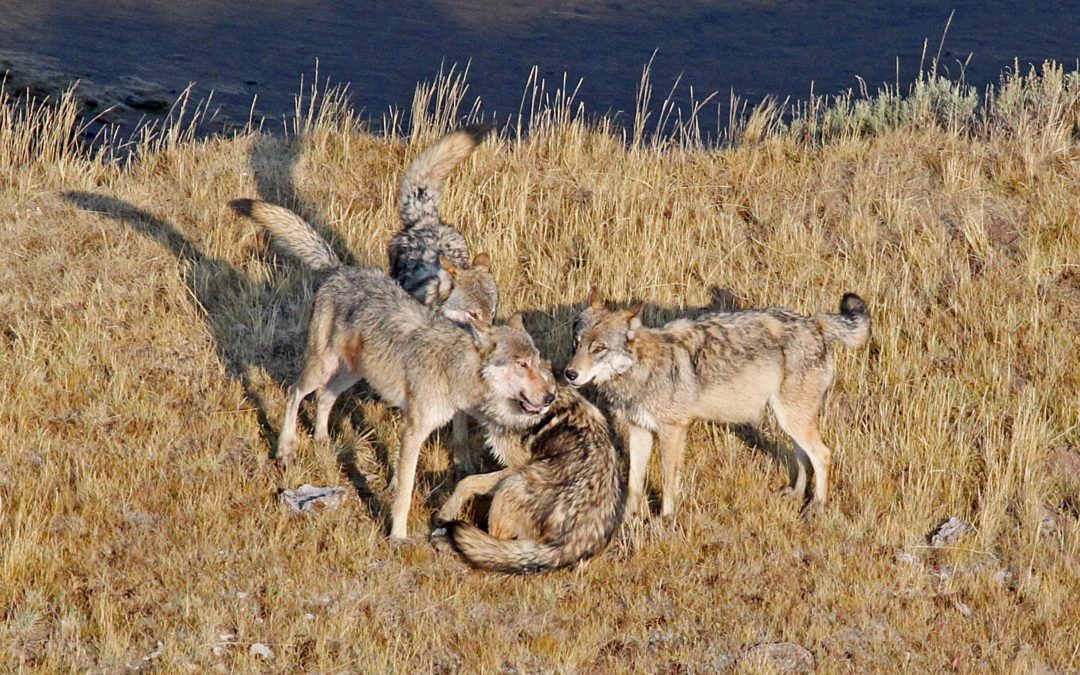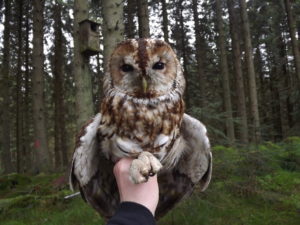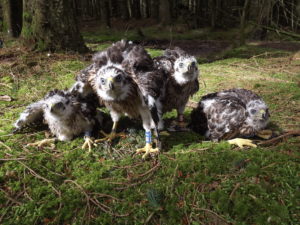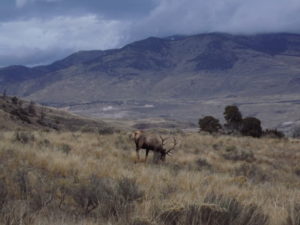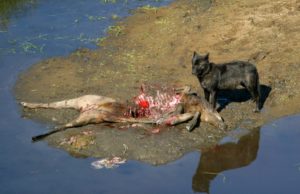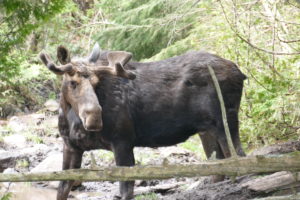Written by Sarah Hoy, former IRSAE member, University of Aberdeen
Photos by Sarah Hoy (owls and moose) and collaborators at the MacNulty Lab Utah State University (wolves).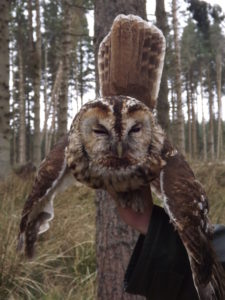
It’s been two years now since I finished my PhD at the University of Aberdeen, UK and began working as a Postdoctoral researcher at Michigan Technological University, US. I really enjoyed my PhD work which assessed how the recovery of northern goshawks in the UK had affected smaller birds of prey, such as tawny owls. I feel very fortunate to have had the opportunity to work on such an amazing project with a fantastic team of supervisors. Nevertheless, towards the end of my PhD I began to feel increasingly drained, both physically, mentally, financially and emotionally. On top of trying to get manuscripts submitted and finish writing my thesis (the basis upon which the last 3-4 years of my life’s work would be judged), I also had to figure out what I was going to do next.
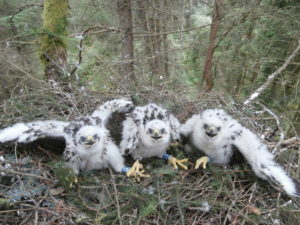 I knew that I wanted a position which was primarily research based, but I wasn’t sure whether it would be better for me to try and find an already funded postdoc position (which might not be in the exact area of research I was most interested in), or to try and apply for a grant to support my own research project. After more than a little prompting from my PhD advisor, I decided to set aside one hour per day to really focus on making this decision, look for potential postdoc or funding opportunities, develop my research ideas and work on getting my C.V. into shape.
I knew that I wanted a position which was primarily research based, but I wasn’t sure whether it would be better for me to try and find an already funded postdoc position (which might not be in the exact area of research I was most interested in), or to try and apply for a grant to support my own research project. After more than a little prompting from my PhD advisor, I decided to set aside one hour per day to really focus on making this decision, look for potential postdoc or funding opportunities, develop my research ideas and work on getting my C.V. into shape.
Shortly after I made this resolution, I came across an advertisement for a postdoc position at Michigan Tech. focusing on the population biology of wolves and elk in Yellowstone National Park, US and wolves and moose in Isle Royale National Park, US. I could hardly believe it, this postdoc sounded like my dream job, working on two research projects that had produced so many of the papers that I read during my PhD and collaborating with researchers who were world renowned ecologists (and my science heroes). The only problem was that the deadline for applications was about the same time as I was due to hand in my thesis and I really didn’t know if I could conjure up enough time or energy to put together a good application. I also couldn’t help but think about how small the likelihood was of me actually getting the position when hundreds of other PhD students and postdocs were undoubtedly applying for it. Nevertheless, I decided to apply, armed with the view that: (i) I would absolutely regret it later if I didn’t apply, and (ii) going through the application process would still be a valuable experience. Even if I didn’t get this position, it would still help me prepare for other applications in the future.
By some miracle, I got invited for a phone interview, scheduled just three days after my PhD defence. I didn’t think it went very well. I was incredibly nervous; I didn’t feel as though I had enough time to prepare and then the phone line cut out half way through the call. I was told that would find out whether I had got the position by the following Friday. Friday came and went, and I still hadn’t heard anything. I tried not to let myself feel too disappointed. Then to my utter astonishment, I was contacted two days later and offered the position! I had just over a month to pack up my life in Aberdeen, say goodbye to all my friends and family, sort out a visa, and get ready to move to America!
I was really excited about my new postdoc position. However, it was also a bit unnerving to switch from my PhD research (the ecology and foraging behaviour of birds of prey), which I was now beginning to feel like an expert in, to researching predator-prey interactions between wolves and ungulates, in not one, but two different study systems. Admittedly part of my experience of transitioning from being a PhD student to a postdoc involved overcoming imposter syndrome. Imposter syndrome is feeling that you are not worthy of your position, that you somehow got it by mistake and that at any moment you will be found out. My PhD advisor had told me that it was pretty common in academia, especially in early career researchers. I just had to keep reminding myself that I had never intentionally misrepresented my abilities, skills or previous experience and that the Principle Investigators (PIs) on the project are all super smart people and wouldn’t have selected me for the position if I really was incapable.
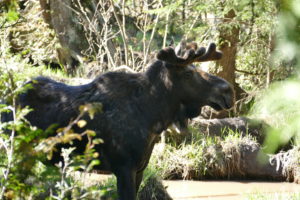 Another part of transitioning from a PhD to a Postdoc position is recognising that you are no longer a student, learning how to be a researcher. As a postdoc you are expected to know what you are doing and be qualified to conduct independent research with minimal supervision. I think that it’s really important that you are able to convey that you understand this difference when applying for postdoc position. Therefore, think carefully about the language that you use when writing cover letters. I highly recommend that you take advantage of opportunities to attend courses or workshops during your PhD, because such opportunities are far less likely as a postdoc. I am very grateful that I had the opportunity to attend several useful workshops/courses during my PhD, supported by IRSAE and Natural Research Limited. Not only were these courses and workshops good opportunities for me to network with other researchers, but they also gave me a different perspective on my own research questions and new ideas about how to address them. More importantly, such courses give you experience of applying new analytical techniques or frameworks that you might need in your future careers. Think strategically about this, even if you’re not going to use a particular state-of-the-art analytical method during you PhD, it might still be in your best interests to attend the course if the leading papers in your field are using it.
Another part of transitioning from a PhD to a Postdoc position is recognising that you are no longer a student, learning how to be a researcher. As a postdoc you are expected to know what you are doing and be qualified to conduct independent research with minimal supervision. I think that it’s really important that you are able to convey that you understand this difference when applying for postdoc position. Therefore, think carefully about the language that you use when writing cover letters. I highly recommend that you take advantage of opportunities to attend courses or workshops during your PhD, because such opportunities are far less likely as a postdoc. I am very grateful that I had the opportunity to attend several useful workshops/courses during my PhD, supported by IRSAE and Natural Research Limited. Not only were these courses and workshops good opportunities for me to network with other researchers, but they also gave me a different perspective on my own research questions and new ideas about how to address them. More importantly, such courses give you experience of applying new analytical techniques or frameworks that you might need in your future careers. Think strategically about this, even if you’re not going to use a particular state-of-the-art analytical method during you PhD, it might still be in your best interests to attend the course if the leading papers in your field are using it.
In some ways postdoc positions can be fairly isolating as you are not part of a cohort like you were during your PhD. Many people (even the institutions that employ you) are not really sure what postdocs are or what they do, should they be treated as employees, students or some kind of apprentice. Before accepting a postdoc position I highly recommend spending some time getting to know what kind of people the PI’s on the project are like because your career development rests firmly with them. Speak to graduate students, former postdocs or professors who have worked with the PI(s). As well as learning about the PI(s) work and management style (and whether it complement your own working style), this might also give you some insights about what your new department and city are like. Before you even apply, I also recommend asking the PI(s) lots of questions about the specifics of the research, such as: (i) whether the research questions and objectives already firmly fixed or whether you will have an important role in developing them; (ii) whether you would be taking over from another postdoc or not, (iii) what lab or field data has already been collected and what still needs to be collected; and (iv) what other responsibilities are associated with the position (e.g. teaching load and supervising graduate students). Not only will this give you insights into what the next few years of your life might be like working on this research project and whether it’s is likely to be a good fit for you, it will also demonstrate that you are really serious about the position and will help you stand out from other applicants.
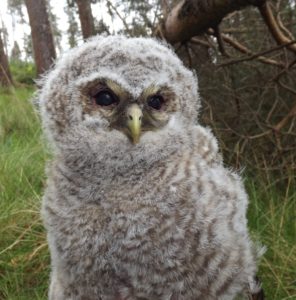 Overall, I guess the thing that I feel most fortunate about is that during both my PhD and postdoc I have had the privilege of working with people who are both great scientists, fantastic mentors and just generally awesome and inspirational human-beings. Yes I felt a little overwhelmed and homesick when I first started my postdoc, but that passed and I have really enjoyed it since then!
Overall, I guess the thing that I feel most fortunate about is that during both my PhD and postdoc I have had the privilege of working with people who are both great scientists, fantastic mentors and just generally awesome and inspirational human-beings. Yes I felt a little overwhelmed and homesick when I first started my postdoc, but that passed and I have really enjoyed it since then!
Good luck!



